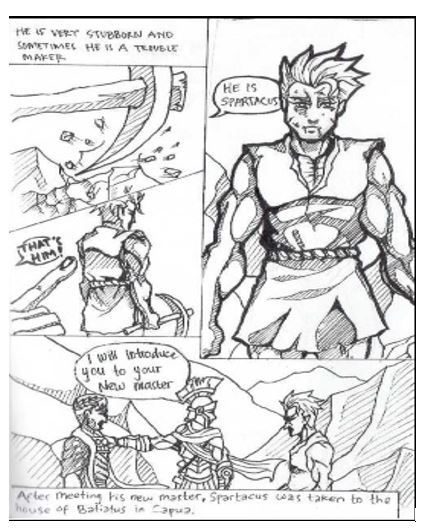Bringing Student-Generated Comic as a Collaborative Project into the Extensive Reading Program
DOI:
https://doi.org/10.21070/jees.v5i1.366Keywords:
student-generated comic, collaborative project, extensive reading, students' perceptionAbstract
The study looks into the possibility of bringing student-generated comic as a collaborative project into the Extensive Reading program. It focuses on the students’ preferences and difficulties in creating a student-generated comic based on their perceptions. For this purpose, the study involved 30 students of the English Education Program of Universitas Muhammadiyah Sidoarjo, who had taken the Extensive Reading program. The questionnaire is employed to assess their perceptions. The results of the study show that creating a student-generated comic is a pleasurable doing, an exciting activity, and a fun way for the EFL learners to study English. Moreover, students consider that student-generated comics can improve students’ language production creativity, contribute an educational resource for other students, and arouse their creativity. Concerning the development of students’ language proficiency, creating comic corresponds to the novel they have studied, affects their English fluency, and improves their writing skills. Astonishingly, only a few students believe that it is not easy to draw and illustrate a comic, compose stories and characters, and reveal the novel’s aspects into a comic.
HIGHLIGHTS:
- Creating a student-generated comic collaboratively as one of Extensive Reading activities is enjoyable, and it is a motivating activity for the students to learn and practice English.
- Generating the comic collaboratively can affect students’ English fluency, understand the novel’s content quickly, and improve their writing skill.
- It is important for combining the curriculum of adult ESL with educational comics to promote the students’ skills and concepts involved in a broad range of literacy.
Downloads
References
l-Nafisah, K. (2015). The Effectiveness of an Extensive Reading Program in Developing Saudi EFL University Students’ Reading Comprehension. Arab World English Journal 6, 98–109. doi: 10.24093/awej/vol6no2.8.
Azman, F. N., Shiratuddin, N., and Zaibon, S. B. (2016). A Study on User’s Perception towards Learner-generated Comics. Econ Journals 6, 37–42.
Calisto, S. A. (2018). Comic-based Instruction and Vocabulary Learning among 11th and 12th Graders in Two Chilean Schools. Intersedes 39, 78–104.
Celik, B. (2017). Effects of Extensive Reading on Learners: How It Develops Certain Points in Vocabulary and Sentence Structure. International Journal of English Linguistics 8, 73–84.
Day, R. R. and Bamford, J. (1998). Extensive Reading in the Second Language Classroom (Cambridge: Cambridge University Press).
Endris, A. A. (2018). Effects of Extensive Reading on EFL Learners’ Reading Comprehension and Attitudes. International Journal of Research in English Education 3, 1–11.
Evensen, E. A. (2014). Comics as A Design Ecosystem: A Case for Comics in Design Education. Image Text: Interdisciplinary Comic Studies 7, 1–14.
Grabe, W. (2009). Reading in a Second Language: Moving from Theory to Practice (New York: Cambridge University Press).
Issa, S. (2018). Comics in the English classroom: a guide to teaching comics across English studies. Journal of Graphic Novels and Comics 9, 310–328. doi: 10.1080/21504857.2017.1355822.
Karimpour, M. and Aidinlou, N. A. (2016). The Effect of Extensive Reading on Iranian EFL Learners’ Vocabulary Learning. Journal of Applied Linguistics and Language Research 3, 71–78.
Krashen, S., Lee, S., and Lao, C. (2017). Comprehensible and Compelling: The Causes and Effects of Free Voluntary Reading (California: Libraries).
Leber-Cook, A. and Cook, R. T. (2013). Stigmatization, Multimodality, and Metaphor: Comics in the Adult English as a Second Language Classroom. In Graphic Novel and Comics in the Classroom: Essay on the Educational Power of Sequential Art, eds. Syma, C. K. Weiner, and R. G (McFarland), 23–34.
Liu, J. and Zhang, J. (2018). The Effects of Extensive Reading on English Vocabulary Learning: A Meta Analysis. English Language Teaching 11, 1–15.
Macalister, J. (2015). Guidelines or commandments? Reconsidering Core Principles in Extensive Reading. Reading in a Foreign Language. Reading in a Foreign Language 27, 122–128.
Mcrae, A. and Guthrie, J. (2009). Promoting Reasons for Reading: Teachers Practices that Impact Motivation, Hiebert, E. (ed.) (Reading More, Reading Better. New York: The Guildford Press).
Merc, A. (2013). The Effect of Comic Strips on EFL Reading Comprehension. International Journal on New Trends in Education and Their Implications 4, 54–64.
Nation, I. (2009). Teaching ESL/EFL Reading and Writing, Routledge, Taylor, and Group, F. (eds.) (New York).
Ng, Q. R., Renandya, W. A., and Chong, M. Y. C. (2019). Extensive Reading: Theory, Research, and Implementation. TEFLIN Journal 30, 171–186.
Novita, D. (2018). Syndicate Learning: An Alternative Approach for Teaching Extensive Reading. Journal of Languages and Language Teaching 6, 27–33.
Poorsoti, S. and Asl, H. D. (2016). Effect of Extensive Reading on Grammatical Accuracy and Fluency of EFL Learners’ Writing Performance. Journal of Applied Linguistics and Language Research 3, 188–201.
Yunus, M., Md, Salehi, H., and Embi, M. A. (2012). Effects of Using Digital Comics to Improve ESL Writing. Research Journal of Applied Sciences, Engineering and Technology 4, 3462–3469.

Published
How to Cite
Issue
Section
License
Copyright (c) 2020 Dian Novita, Slamet Setiawan

This work is licensed under a Creative Commons Attribution 4.0 International License.







